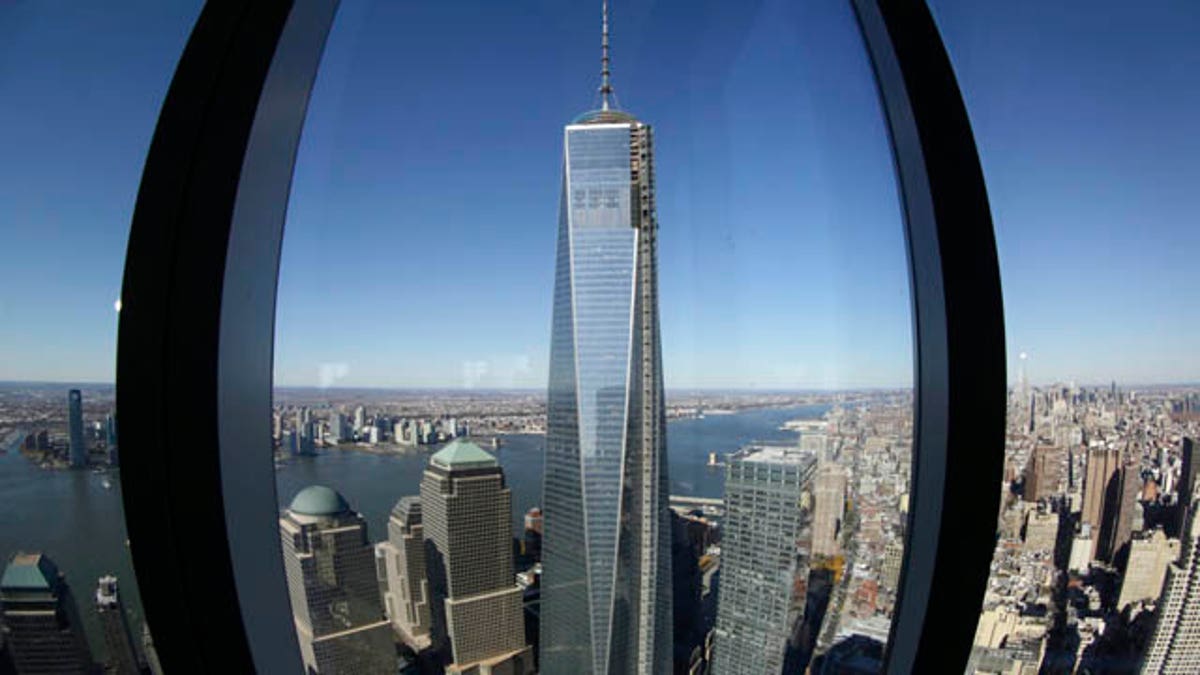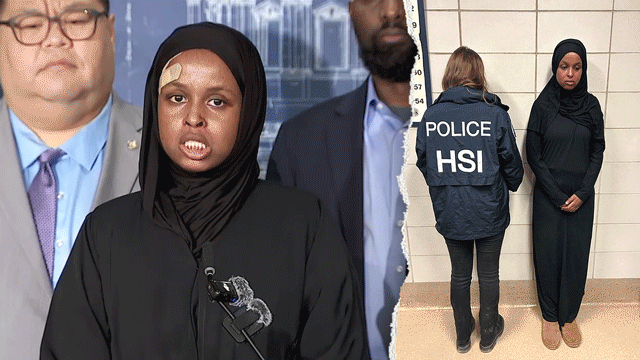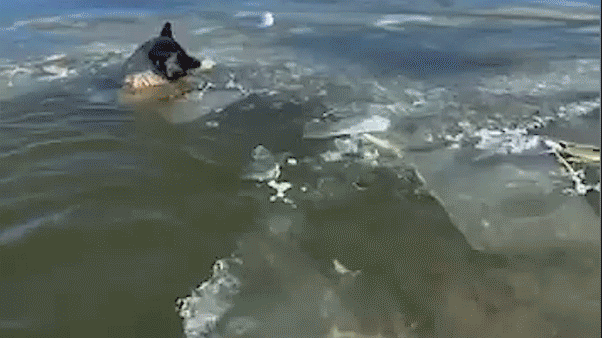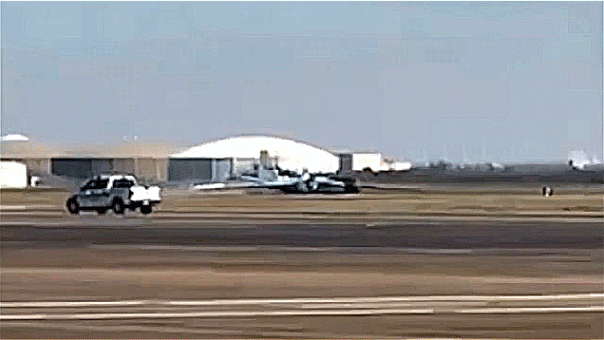
FILE - In this Nov. 13, 2013 file photo, 1 World Trade Center, center, is viewed from the 62nd floor of Four World Trade Center in New York. (AP Photo/Mark Lennihan, File)
NEW YORK – With the toll of a bell and a solemn moment of silence, the nation paused Thursday to mark the 13th anniversary of the Sept. 11, 2001, terror attack.
Stephen Albert, whose father Jon died during the attacks, kicked off reading the names of the nearly 3,000 people killed in New York, at the Pentagon and near Shanksville, Pennsylvania. He said his dad was a dedicated father, husband and respected colleague.
"He will be sorely missed," he said.
The sad roll call was to pause only four times: to mark the times when the first plane struck the World Trade Center, when the second plane struck, when the first tower fell and when the second tower fell.
Thelma Stuart, whose husband Walwyn Wellington Stuart, Jr., 28, was a Port Authority Police Department officer, said the nation should pray for its leaders, "that God will grant them wisdom, knowledge and understanding on directing them on moving forward."
Little about the annual ceremony at ground zero has changed. But so much around it has.
For the first time, the National Sept. 11 Memorial Museum -- which includes gut-wrenching artifacts and graphic photos of the attacks -- will be open on the anniversary. Fences around the memorial plaza have come down, integrating the sacred site more fully with the streets of Manhattan while completely opening it up to the public and camera-wielding tourists.
A new mayor is in office, Bill de Blasio, one far less linked to the attacks and their aftermath than his immediate predecessors. And finally, a nearly completed One World Trade Center has risen 1,776 feet above ground zero and will be filled with office workers by this date in 2015, another sign that a page in the city's history may be turning.
On Thursday, New Yorkers went about their morning routines along sidewalks that were once cordoned off. Inside the plaza, families milled quietly.
Franklin Murray of New York wore a shirt with a photo of his brother, Harry Glen, and the words "our angel" above the photo and "the wind beneath our wings" below. Glen worked at Cantor Fitzgerald, one of the companies most decimated.
He said he wanted to see the memorial for the first time, and it gave him a "funny feeling" to know there was now a memorial. He has come to the ceremony before but "before it was getting harder, so I forced myself to get down here."
"Coming down to the area is rough," he said.
For some who lost loved ones in the attacks, the increasing feel of a return to normalcy in the area threatens to obscure the tragedy that took place there and interfere with their grief.
"Instead of a quiet place of reflection, it's where kids are running around," said Nancy Nee, whose firefighter brother, George Cain, was killed in the attacks. "Some people forget this is a cemetery. I would never go to the Holocaust museum and take a selfie."
But for others, the changes are an important part of the healing process.
"When I first saw (One World Trade Center), it really made my heart sing," said Debra Burlingame, whose brother Charles Burlingame was the pilot of the plane that crashed into the Pentagon. "It does every time I see it because it's so symbolic of what the country went through."
"I want to see it bustling," she said. "I want to see more housing down there; I want to see it alive and bursting with businesses."
The memorial plaza will be closed to the public for most of the day and available only to family members. It will reopen at 6 p.m., at which point thousands of New Yorkers are expected to mark the anniversary at the twin reflecting pools where the towers once stood.
In May, when the museum opened in a ceremony attended by President Barack Obama, the fences that had surrounded the plaza for years disappeared, as did the need for visitors to obtain a timed ticket. Now, thousands of people freely visit every day, from cellphone-toting travelers to workers on a lunch break, and those crowds will only swell further this year when One World Trade Center finally opens.
The first ceremony at the site was held six months after the Twin Towers fell and was organized by then-Mayor Michael Bloomberg and his aides. Bloomberg, who took office just three months after the attacks, remained in charge, acting as the master of ceremonies for the next decade. He attended on Thursday.
After other elected officials attempted to gain a larger role at the solemn event, in 2012, all politicians -- including Bloomberg -- were prohibited from speaking at the event. That remains the case now.









































